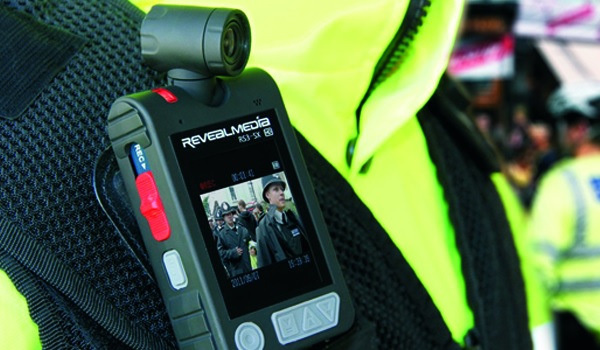Use of BWV by officers invaluable
Despite concerns raised in a survey by the Press Association that police forces are adopting separate policies across arbitrary borders in an entirely disjointed approach to body-worn video cameras (PP522), their use is invaluable according to one police and crime commissioner (PCC).
Despite concerns raised in a survey by the Press Association that police forces are adopting separate policies across arbitrary borders in an entirely disjointed approach to body-worn video cameras (PP522), their use is invaluable according to one police and crime commissioner (PCC).
All frontline police officers, police community support officers and Special Constables in Staffordshire were provided with BWV cameras two years ago in an initiative funded by the PCC. It was the first in the country to equip all frontline officers with the technology, with 550 cameras now in use.
Armed officers also have access to BWV. While all firearms officers deployed in a non-armed capacity wear a chest-mounted camera when involved in local policing duties, Staffordshire Police is also participating in a national pilot where some firearms officers deployed in an armed capacity wear head-mounted cameras. The purpose of the pilot is to evaluate if it overcomes the obstruction often created when adopting the on aim position.
Staffordshire PCC Matthew Ellis said: The use of body cams is invaluable. They remove any doubt as to what happened in a situation, which means the facts are clear.
It was clear to me that the small pilot undertaken in Staffordshire before I took office needed a swift and full roll-out across the entire force.
The use of bodycams ensure police officers behave appropriately in their duties interacting with individuals as well as speed up the investigation of what can be at times complex complaints against officers.
Bodycams reinforce openness and transparency in policing, which I believe is so important.
Safer Neighbourhood Panels in Staffordshire have been trained to examine BWV camera footage from Taser use and from stop and searches by police officers.
More than 100 people sit on the panels, which have been established across Staffordshire and Stoke-on-Trent to hold each areas local policing commander to account.
The county-wide independent Ethics, Transparency and Audit Panel (ETAP) also established by Mr Ellis has recommended the mandatory use of BWV for every stop and search incident in Staffordshire.
The ETAP report published earlier this year also recommended that BWV use was mandatory, not discretionary as it has been in the past, for all domestic abuse incidents and incidents where police use, or anticipate using, force.
However, it said there needs to be a caveat, which allows the camera to be switched off if continual use aggravates the situation, or the time-delay to switch on a BWV device places the officer in a life-threatening position or subject to personal injury.
All officers wear BWV but they do not all use it in the same way, said the ETAP report.
It is accepted that video does modify behaviour and the ETAP view is that this has a positive effect on the more sensitive of incidents, in particular stop and search, domestic abuse and deployment of Taser.
In all of these there is strong public opinion and occasionally there has been adverse national media coverage, which has led to criticisms of police behaviour. If cases are brought to court, or any complaint against the police is forthcoming, then questions may be asked about why BWV was not used when it could provide evidence.
As it is impossible to edit recordings, they are often regarded as independent witness evidence.
Staffordshire Police Chief Inspector Neil Hulme said: BWV is very effective; it captures events as they happen, often defuses potentially violent situations and provides speedier justice for victims as offenders are more likely to plead guilty.
However, he confirmed to the ETAP that while the local police federation was supportive of BWV, it was not supportive of routine mandatory use.
In his annual report for 2014/15 issued at the end of last year, the Surveillance Camera Commissioner Tony Porter said analysis of police use of BWV was positive; the forces observed exhibited proportionate, transparent and effective use of



